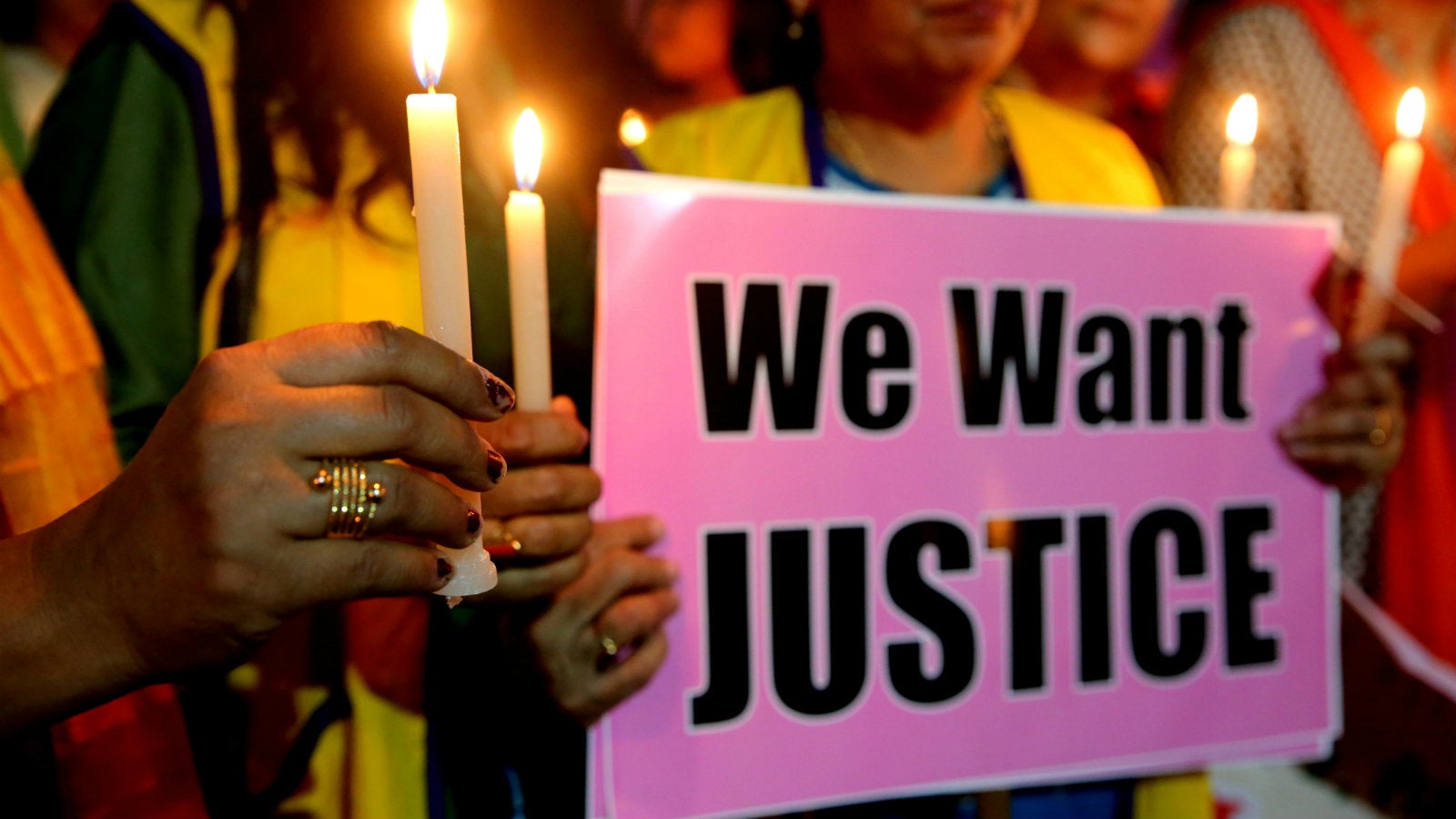Assaulted and shunned, India’s women with disabilities may never get their #MeToo moment
Survivors of sexual assault in India rarely get the justice they deserve—and it is all the more difficult for women and girls with disabilities.


Survivors of sexual assault in India rarely get the justice they deserve—and it is all the more difficult for women and girls with disabilities.
They routinely struggle with reporting abuse and getting appropriate medical care, besides navigating the country’s courts, an April 03 report by Human Rights Watch (HRW) says. The report is based on investigations into 17 cases of rape and gangrape of women and children with disabilities in eight Indian states: Chhattisgarh, Delhi, Karnataka, Maharashtra, Odisha, Tamil Nadu, Uttarakhand, and West Bengal. HRW interviewed around 111 people, including survivors, family members, lawyers, the police, and activists.
In 2012, India’s sexual-violence laws were strengthened in the wake of the countrywide protests sparked by the brutal New Delhi gangrape. Later, the Rights of Persons with Disabilities Act, 2016, was brought in to protect those with disabilities. But HRW has found that all this hasn’t helped much.
These are the key hurdles that the organisation identified:
Battling the stigma
Most Indian women who try to report cases of sexual assault face victim-blaming and limited access to support services. This is besides the insensitive treatment by doctors and the police themselves. These challenges, HRW says, are exacerbated for those with disabilities.
While the laws do have some provisions to support people with disabilities in such cases, the report found that the officials often fail to account for the disabilities in the course of their probes.
“For some women and girls with disabilities, reasonable accommodations—changes in ordinary procedures or practices to meet the needs of a particular person—are key in reporting sexual violence,” the report said. In 15 out of the 17 cases analysed, HRW found that officials did not follow the law to accommodate even severe and visible disabilities.
Without an accommodating approach, it’s difficult to ensure that justice is served.
Besides, stigmatisation meant that reporting sexual assault was almost impossible for many survivors, who were often deemed to have “less worth than other women” or as “unproductive” anyway. The report cites a case from 2014 where a young woman with cerebral palsy and multiple disabilities, living in a remote West Bengal village, was raped by three neighbours.
“The villagers took sides. They felt that ‘productive’ men in their prime were jailed due to an ‘unproductive’ woman who cannot even walk or talk properly,” Shampa Sengupta, director of the Kolkata-based Sruti Disability Rights Centre, told HRW.
What’s worse is that in states such as Delhi, Odisha, Tamil Nadu, and West Bengal, sexual violence occurs within the family, so many parents choose not to complain. Instead, it is social workers, journalists, and child welfare committees that are more likely to push for justice.
And many victims and their relatives were simply unaware of their rights, or even that sexual violence is a crime.
Braving the police
While there have been efforts to sensitise the Indian police to survivors of sexual assault, not much has changed yet. For victims with disabilities, this is a significant barrier to justice.
In many of the cases, HRW found that they were subjected to gross mistreatment by the cops, who either disbelieved their accounts or just left them unattended for hours—sometimes even overnight—before even filing a case.
For instance, the Kolkata police simply refused to believe a young woman with a psycho-social disability who said that she had been gangraped.
“The police said things like: ‘She’s mental, why should I pay attention to her?’ ‘She’s a gone case, why should I listen?'” the woman told HRW. She added that things changed only when her case was covered by the media, after which she was interviewed by a female police officer and her abusers were arrested.
The police officials that HRW spoke to added another layer to the problem: A lack of training among the police personnel. Top police officers acknowledged that sensitising the forces is key.
Braving the medical system
While the law does include detailed guidelines on how to sensitively examine survivors of sexual assault, including those with disabilities, HRW found that only nine states have so far adopted them. In any case, many medical professionals still ignore them.
The horrifyingly invasive “two-finger test” to assess if girls or women are “habituated to sexual intercourse” continues to be a common practice, for instance. And even though children are supposed to be examined in the presence of a parent or someone they trust, this rule is often not followed, HRW said.
Navigating the court system
When women and girls with disabilities do get as far as the courts, it is only to face more hurdles. Notably, a lack of assistance during trials. In the absence of sensitive lawyers and judicial officers who can guide them through the processes, the experience can be incredibly traumatic, HRW says.
The stigmatisation extends even to the courtroom where their accounts are often at risk of being disbelieved. In one case, HRW described the experience of a 38-year-old with cerebral palsy who could not communicate the way other adults her age would. The magistrate refused to accept her testimony, reportedly because she used a childish term for the penis when describing what happened to her.
Moreover, even though survivors are entitled to some form of compensation, HRW found that this was awarded in only five of the 17 cases it analysed, even though many of them had resulted in “extreme injury, trauma, and economic hardship as a result of childbirth,” it said.
Altogether, assaulted women and girls with disabilities struggle to get the justice they deserve. Ultimately, only enforcement and action can make a difference, HRW says.